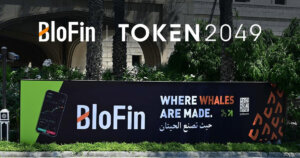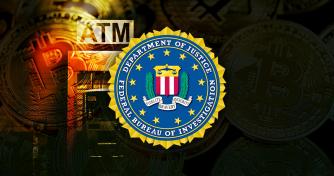 Cantor Fitzgerald CEO bullish on Tether and Bitcoin, says other cryptocurrencies are ‘make believe’
Cantor Fitzgerald CEO bullish on Tether and Bitcoin, says other cryptocurrencies are ‘make believe’ Cantor Fitzgerald CEO bullish on Tether and Bitcoin, says other cryptocurrencies are ‘make believe’
Howard Lutnik expressed confidence in Tether's treasury holdings and Bitcoin's market-driven appeal amidst a looming wave of real estate defaults.

Cover art/illustration via CryptoSlate. Image includes combined content which may include AI-generated content.
Howard Lutnik, CEO of Cantor Fitzgerald, recently shared his insights on the future of the crypto industry, highlighting Tether and Bitcoin during the CNBC Money Movers Podcast. As the CEO of a global, full-service financial services firm, including institutional equity, investment banking, commercial real estate, and bond custody, Lutnik offers a unique lens through which to view the intersection of traditional finance and the evolving digital asset landscape.
Setting the macro-economic picture, Lutnik stated that the Federal Reserve will likely undertake a steady approach to interest rate adjustments, predicting a substantial wave of defaults in the real estate sector in 2024. He further suggested that these defaults might not lead to systemic financial distress due to sound underwriting practices post-2008. He also highlighted the potential for stable growth in the tech sector and banking, buoyed by steady interest rates rather than the rate cuts predicted by others.
Amid this backdrop, Lutnik delved into his views on cryptocurrencies, where he asserted his approval of Bitcoin as a unique asset, akin to Tesla stock, driven primarily by market dynamics rather than fundamental values. Lutnik sees Bitcoin’s appeal in its halving mechanism, which historically has led to price increases, and the potential for an ETF in the United States, which could significantly alter its market dynamics.
Lutnik’s enthusiasm was more pronounced for Tether, a stablecoin he views as a pivotal tool in global finance. He explained Tether’s utility in countries like Argentina, where currency stability is a major issue, and pointed out the significant holdings of Tether in treasuries. His endorsement of Tether is rooted in its ability to offer a stable medium of exchange in volatile economic environments, contrasting with Bitcoin’s more speculative nature. Lutnik also confirmed that his company holds Tether’s U.S. Treasuries.
Regarding other crypto projects, Lutnik stated,
“I am a fan of crypto, and let’s be very specific. Bitcoin, just Bitcoin. These other coins, they’re not a thing[…] They’re like, kinda make believe… Maybe Ethereum is okay.”
While he appeared open to the idea that Ethereum was not ‘make-believe,’ one of the leading networks upon which Tether is issued, he fervently dismissed the value of anything other than Bitcoin and Tether.
The discussion also touched upon the differing opinions of financial leaders like Jamie Dimon and Charlie Munger on crypto, with Lutnik acknowledging their skepticism but countering with the practical utility of assets like Bitcoin in specific geopolitical and economic contexts. He highlighted Bitcoin’s unregulated nature, making it an untouchable asset for individuals in precarious situations like Russian oligarchs looking to safeguard their wealth.
Lutnik’s predictions about the real estate market and his analysis of the potential impacts on various sectors, including tech and banking, provide a comprehensive view of the anticipated economic shifts. Further, given his professional situation, his perspectives on Bitcoin and Tether are illuminating, highlighting both the opportunities and challenges digital assets face in today’s economic environment.








































































